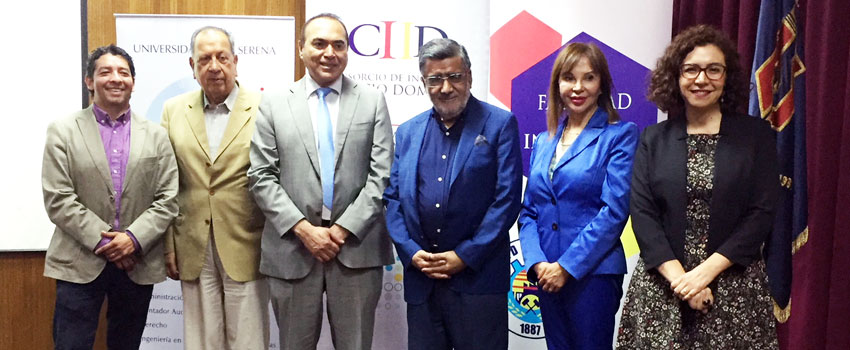
The III National Entrepreneurial Education Colloquium was sponsored by the Ignacio Domeyko Engineering Consortium (CIID), made up of the Engineering faculties of the University of La Serena and the University of Atacama (UDA), and is part of the “ New Engineering for 2030 - Regions” by Corfo.
Promoting the exchange of good practices between academics from higher education institutions dedicated to the training of entrepreneurs was the objective of the III National Colloquium on Entrepreneurial Education, an event that brought together researchers, academics and professionals at the University of La Serena for three days. linked to the theme of entrepreneurship and innovation from the north and south of the country, who shared experiences and new knowledge on the subject through the various exhibitions presented during said meeting.
Organized by the Faculty of Engineering and the Faculty of Social and Economic Sciences of the ULS, in conjunction with the Entrepreneurship and Innovation Network in Latin America (EmprendeSUR), which has among its members the most prominent entrepreneurship and innovation professionals of the continent, the Colloquium allowed academics from the various participating institutions to reinforce their commitment to entrepreneurial training, something widely valued by university authorities.
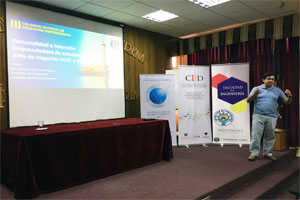 In this sense, the Rector of the University of La Serena, Dr. Nibaldo Avilés, highlighted the importance of the ULS joining the task of the EmprendeSUR Network of promoting the creation of innovative, fast-growing companies, developing entrepreneurship, strengthening entrepreneurial education and design entrepreneurial cities that will be the centers of innovation and entrepreneurship in the future, assuming through the development of this third Colloquium a concrete commitment to the development of entrepreneurial education.
In this sense, the Rector of the University of La Serena, Dr. Nibaldo Avilés, highlighted the importance of the ULS joining the task of the EmprendeSUR Network of promoting the creation of innovative, fast-growing companies, developing entrepreneurship, strengthening entrepreneurial education and design entrepreneurial cities that will be the centers of innovation and entrepreneurship in the future, assuming through the development of this third Colloquium a concrete commitment to the development of entrepreneurial education.
“The University of La Serena conceives entrepreneurship as a valuable option for the professional development of its students and professionals, which is why we are convinced that the student and graduate of the institution must have the skills demanded by their professional field, but also the called 'soft skills', which are summarized in having an entrepreneurial seal and facing life with an entrepreneurial mentality," said the highest academic authority at the ULS.
He added that “the latter entails a proactive attitude, the ability to work as a team, knowing how to lead work teams, the ability to work under pressure, the strength to overcome failure, and also embodying high ethical values,” so developing initiatives that “They contribute to the generation of a climate of regional entrepreneurship, and they also reflect the high impact of the actions of linking our university with the environment” is relevant for this state university.
In the same vein, the Dean of the Faculty of Social and Economic Sciences of the ULS, Dr. Luperfina Rojas, pointed out that the University, through the FACSE, “is immersed in this challenge, and for this reason, seeks to train professionals competent and entrepreneurial, capable of initiating the autonomous development of micro-enterprises, promoting the innovative processes of companies and organizations in our region, and also becoming job generators.”
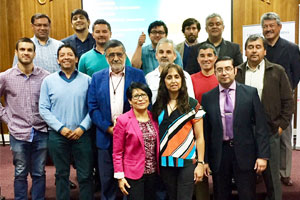 “Updating the content and experiences of its academics on these topics is essential for the success of our management,” said Dr. Rojas Escobar, which is why she highlighted the participation and joint work of all academics, researchers, professors and professionals from both the FACSE and the Faculty of Engineering (FIULS) that made the development of this Colloquium possible, which in turn made visible the need to prioritize entrepreneurial education programs in public policies from the school level to higher education.
“Updating the content and experiences of its academics on these topics is essential for the success of our management,” said Dr. Rojas Escobar, which is why she highlighted the participation and joint work of all academics, researchers, professors and professionals from both the FACSE and the Faculty of Engineering (FIULS) that made the development of this Colloquium possible, which in turn made visible the need to prioritize entrepreneurial education programs in public policies from the school level to higher education.
For his part, the Dean of the FIULS, Dr. Ing. Mario Durán, expressed that the third version of this national colloquium, held between January 10 and 12 recently, acquires even more relevance given the new paradigms of the Society of Knowledge, which - in his opinion - “explain that people, along with knowing and knowing, must develop capabilities and skills, given the need for a profound cultural change that encourages and supports these new capabilities from an early age and in a sustainable manner. ”.
He added that “the role of education and the radical changes that traditional teaching must face constitute a priority challenge in this new scenario,” which is why being part of and hosting this important meeting, and hearing from the voice of its protagonists, the entrepreneurship experiences arising from their classrooms, only reinforce the interest in training professionals and postgraduates with a solid scientific and technological base, guided by a humanistic training, which contributes to sustainable development and a better quality of life for society.
An example of this is the panel carried out with young entrepreneurs who graduated from FIULS, Daniel Mondaca and Joaquín Morey, who through their companies Prolinguo and IntAR21, respectively, are a clear example of the importance of training in research and development, innovation and entrepreneurship for the future development of engineering professionals and any other discipline that contributes to the growth of the country, something highly valued by the participants of the III National Entrepreneurial Education Colloquium.
This initiative also consolidated the work carried out by the Chilean chapter of the EmprendeSUR Network, currently chaired by Dr. Pedro Vera and created in 2004 based on the concern of a group of teachers, researchers, and academics who shared the need for build a space for meeting, debate and reflection on the problems of entrepreneurship and innovation; and show the impact of entrepreneurship generated in higher education institutions in the Coquimbo Region.
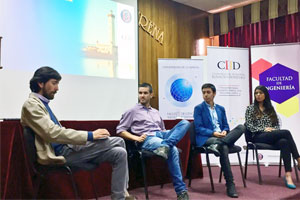 In this regard, Dr. Vera, a mechanical civil engineer from the University of Concepción and Director of the Entrepreneurship Promotion and Development Program (EMPRENDO) of said university, highlighted that “entrepreneurial and innovative training must permeate the education curriculum. formal at all levels from basic education to higher education and starting at an early age", a task that - in his opinion - "is not an isolated task but rather opens a space for the collaboration of all actors, and in particular the community academic.”
In this regard, Dr. Vera, a mechanical civil engineer from the University of Concepción and Director of the Entrepreneurship Promotion and Development Program (EMPRENDO) of said university, highlighted that “entrepreneurial and innovative training must permeate the education curriculum. formal at all levels from basic education to higher education and starting at an early age", a task that - in his opinion - "is not an isolated task but rather opens a space for the collaboration of all actors, and in particular the community academic.”
For this reason, he pointed out, discussing topics such as the development of creative thinking through e-learning experiences, or defining the personality and entrepreneurial intention of students, as well as analyzing the success of centers, programs, projects and business incubators. As support for entrepreneurial training and the development and strengthening of the entrepreneurial ecosystem, it was of great help so that “from the exchange of experiences, we are able to create education for a new Chile.”
Finally, it should be noted that this activity, carried out in the Buenaventura Osorio Hall of the ULS Faculty of Engineering, was sponsored by the Ignacio Domeyko Engineering Consortium, which seeks to transform the respective engineering faculties of the ULS and the UDA into references national and international in research and development, innovation and entrepreneurship - with emphasis on mining, energy and sustainability -, involving various actors in society to contribute to the formation of world-class human capital.
Source: FIULS Press

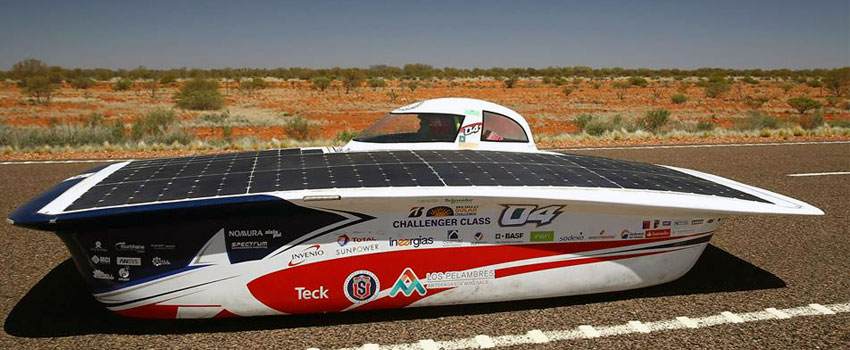
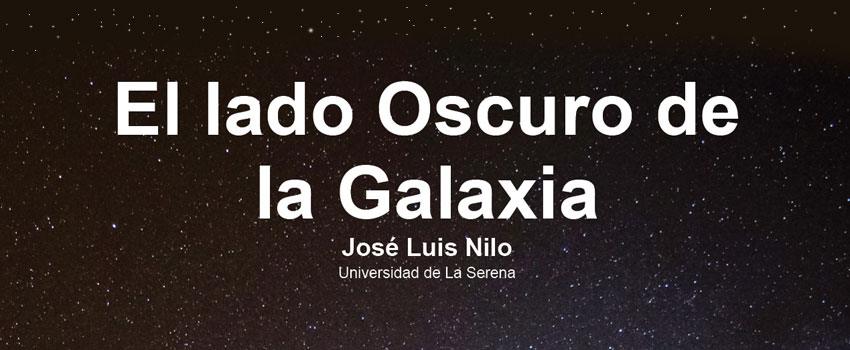
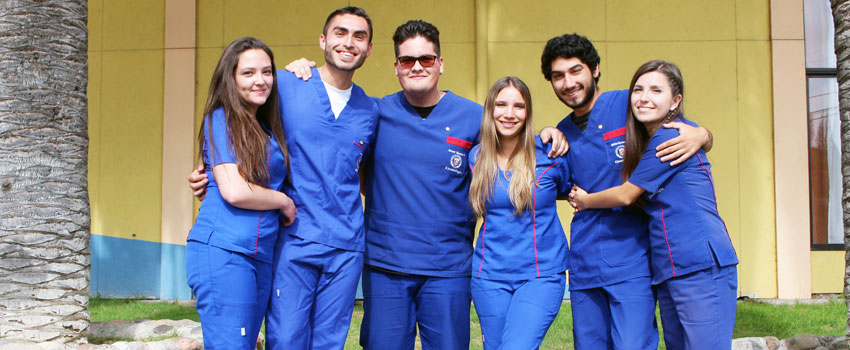
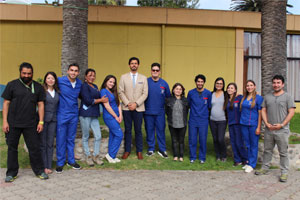 Each of the next 6 new kinesiology professionals from the University of La Serena had the opportunity to work in 4 health centers in the region (offices in La Serena and Coquimbo, La Serena Hospital, Coquimbo Regional Clinic, Kinnet Kinesic Center, Fundación Farré, community rehabilitation centers, pediatric and adult respiratory disease wards).
Each of the next 6 new kinesiology professionals from the University of La Serena had the opportunity to work in 4 health centers in the region (offices in La Serena and Coquimbo, La Serena Hospital, Coquimbo Regional Clinic, Kinnet Kinesic Center, Fundación Farré, community rehabilitation centers, pediatric and adult respiratory disease wards).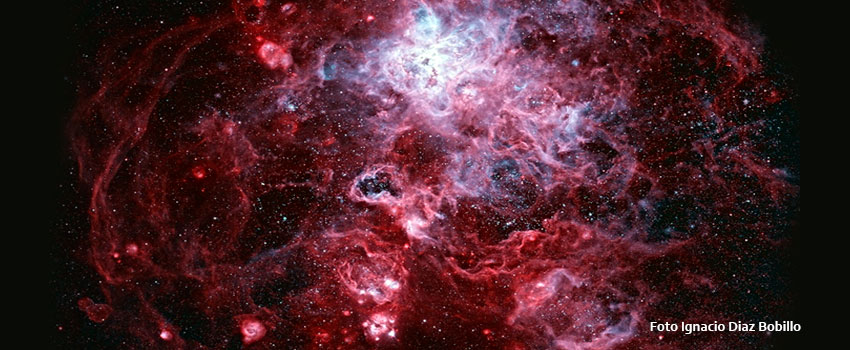
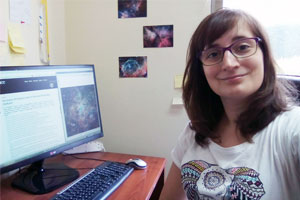 Dr. Carolina Sabín, co-author of the article and researcher at the ULS Department of Physics and Astronomy, explained that the study was surprised by the number of stars with 200 to 300 solar masses in this region, being some of the most massive stars ever observed.
Dr. Carolina Sabín, co-author of the article and researcher at the ULS Department of Physics and Astronomy, explained that the study was surprised by the number of stars with 200 to 300 solar masses in this region, being some of the most massive stars ever observed.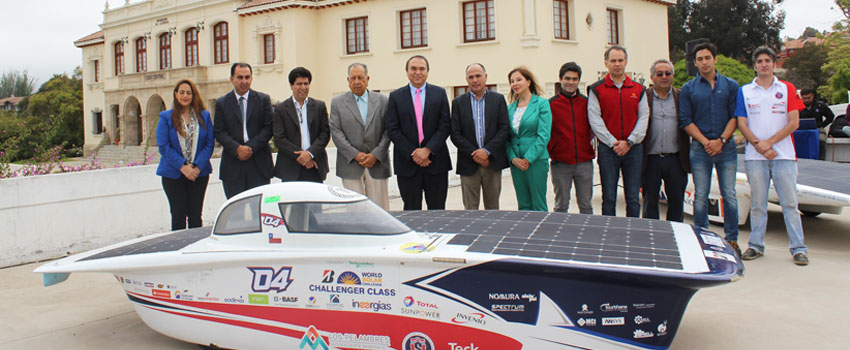
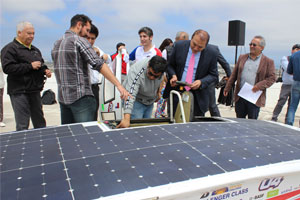 The IK4 crossed the finish line within the top ten vehicles, thus becoming the world's top ten in solar vehicle technology, alongside powers such as Holland, the United States, Japan, among others.
The IK4 crossed the finish line within the top ten vehicles, thus becoming the world's top ten in solar vehicle technology, alongside powers such as Holland, the United States, Japan, among others.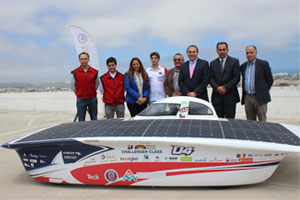 Benjamín Pieper, Operations Support Service Manager at Minera Los Pelambres, highlighted the great pride that it has meant for the company to be able to carry out this work together with the team from the University of La Serena, as well as see what has been built and recognize the performance they had in an international competition, since “being tenth in the world is the result of a work of excellence and that is undoubtedly a challenge to continue generating ties between the university world and our mining company,” stated the executive.
Benjamín Pieper, Operations Support Service Manager at Minera Los Pelambres, highlighted the great pride that it has meant for the company to be able to carry out this work together with the team from the University of La Serena, as well as see what has been built and recognize the performance they had in an international competition, since “being tenth in the world is the result of a work of excellence and that is undoubtedly a challenge to continue generating ties between the university world and our mining company,” stated the executive.